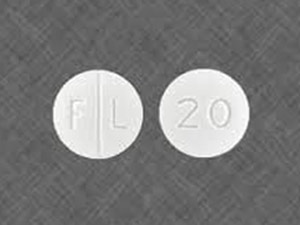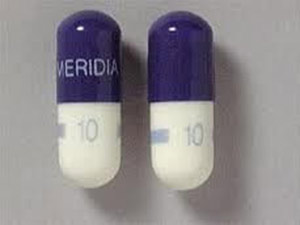
Alprazolam for anxiety
Alprazolam is a medication classified as a benzodiazepine, commonly prescribed for the treatment of anxiety disorders, panic disorders, and occasionally for other conditions like insomnia or seizures. It works by enhancing the effects of gamma-aminobutyric acid (GABA), a neurotransmitter in the brain that helps to regulate anxiety and stress.
Here are some key points to know about alprazolam for anxiety:
- Fast-Acting: Alprazolam has a relatively rapid onset of action, typically providing relief from symptoms within 30 to 60 minutes after ingestion. This fast-acting nature can be beneficial for individuals experiencing acute anxiety or panic attacks.
- Short-Acting: Compared to some other benzodiazepines, alprazolam has a relatively short duration of action, with effects typically lasting about 4 to 6 hours. This short duration can make it suitable for as-needed use to manage acute anxiety symptoms.
- Potential for Dependence and Tolerance: Like other benzodiazepines, alprazolam has a potential for dependence and tolerance if used long-term or at high doses. It’s essential to use it exactly as prescribed by a healthcare provider and to avoid increasing the dose or using it for longer than recommended.
- Risk of Withdrawal: Abrupt discontinuation of alprazolam or rapid dose reduction can lead to withdrawal symptoms, including rebound anxiety, insomnia, irritability, and in severe cases, seizures. It’s important to taper off the medication gradually under medical supervision when discontinuing it.
- Side Effects: Common side effects of alprazolam may include drowsiness, dizziness, lightheadedness, confusion, impaired coordination, and memory problems. These side effects are more likely to occur when starting the medication or with higher doses.
What is alprazolam?
Alprazolam is a medication belonging to the class of drugs known as benzodiazepines. It is commonly prescribed to treat anxiety disorders, panic disorders, and sometimes other conditions like insomnia or certain types of seizures. Alprazolam works by enhancing the effects of gamma-aminobutyric acid (GABA), a neurotransmitter in the brain that helps to regulate anxiety and stress.
Here are some key points about alprazolam:
- Anxiolytic Properties: Alprazolam has anxiolytic (anti-anxiety), sedative, hypnotic, muscle relaxant, and anticonvulsant properties. It can help alleviate symptoms of anxiety, such as excessive worrying, restlessness, tension, and physical symptoms like palpitations or sweating.
- Fast Onset of Action: Alprazolam has a relatively rapid onset of action, typically providing relief from symptoms within 30 to 60 minutes after ingestion. This fast-acting nature can be beneficial for individuals experiencing acute anxiety or panic attacks.
- Short Duration of Action: Compared to some other benzodiazepines, alprazolam has a relatively short duration of action, with effects typically lasting about 4 to 6 hours. This short duration can make it suitable for as-needed use to manage acute anxiety symptoms.
- Prescription Use: Alprazolam is available by prescription only and is typically taken orally in tablet or extended-release tablet form. It is important to take alprazolam exactly as prescribed by a healthcare provider and to follow the recommended dosage instructions.
- Potential for Dependence and Tolerance: Like other benzodiazepines, alprazolam has a potential for dependence and tolerance if used long-term or at high doses. It’s essential to use it exactly as prescribed and to avoid increasing the dose or using it for longer than recommended to minimize the risk of dependence and withdrawal symptoms.
Alprazolam for Insomnia
While alprazolam is occasionally prescribed off-label for insomnia, it’s generally not recommended as a first-line treatment due to several factors:
- Short Duration of Action: Alprazolam has a relatively short duration of action, typically lasting about 4 to 6 hours. This means it may not provide sufficient coverage throughout the night to help individuals stay asleep.
- Potential for Dependence and Tolerance: Alprazolam, like other benzodiazepines, has a potential for dependence and tolerance if used long-term or at high doses. Using it regularly for insomnia can increase the risk of developing these issues.
- Rebound Insomnia: Abrupt discontinuation of alprazolam or even dose reduction can lead to rebound insomnia, where sleep problems worsen temporarily after stopping the medication.
- Memory Impairment: Benzodiazepines, including alprazolam, can impair memory and cognitive function, especially when taken in higher doses or for an extended period. This can be problematic, particularly for older adults who are already at risk for cognitive decline.
- Risk of Overdose: Alprazolam can cause respiratory depression, especially when combined with other central nervous system depressants like alcohol or opioids. Overdose can be life-threatening, particularly in individuals with respiratory or cardiovascular conditions.
If someone is experiencing insomnia, it’s essential to explore safer and more effective treatment options, such as cognitive-behavioral therapy for insomnia (CBT-I) or other non-pharmacological interventions. CBT-I focuses on changing behaviors and thoughts that contribute to sleep problems and has been shown to be effective in improving sleep quality and duration without the risks associated with medications like alprazolam.
Side Effects of Alprazolam
Alprazolam, like other benzodiazepines, can cause a range of side effects, especially when used at higher doses or for prolonged periods. It’s important to be aware of these potential side effects when taking alprazolam. Here are some common side effects:
- Drowsiness: One of the most common side effects of alprazolam is drowsiness or sedation. This can impair cognitive and motor function, making activities such as driving unsafe.
- Dizziness: Alprazolam can cause feelings of dizziness or lightheadedness, particularly when standing up quickly or changing positions.
- Confusion: Some individuals may experience confusion or difficulty concentrating while taking alprazolam, especially at higher doses.
- Impaired Coordination: Alprazolam can affect coordination and balance, leading to clumsiness or difficulty with tasks that require fine motor skills.
- Memory Impairment: Benzodiazepines like alprazolam can impair short-term memory and cognitive function, particularly in older adults or at higher doses.
- Headache: Headaches are a relatively common side effect of alprazolam, though they are usually mild and temporary.
- Dry Mouth: Alprazolam can cause dry mouth, which may contribute to discomfort or an increased risk of dental issues such as tooth decay.
- Nausea and Vomiting: Some individuals may experience nausea or vomiting while taking alprazolam, though this side effect is less common.
Alprazolam in the Treatment of Depression
Alprazolam is primarily prescribed for the treatment of anxiety disorders and panic disorders, rather than depression. While it can provide short-term relief from symptoms of anxiety, it’s generally not considered a first-line treatment for depression. Here’s why:
- Limited Efficacy for Depression: Alprazolam is not FDA-approved for the treatment of depression, and clinical evidence supporting its effectiveness in treating depressive symptoms is limited. While some individuals with depression may experience temporary relief from anxiety-related symptoms, alprazolam does not address the underlying causes of depression.
- Risk of Dependence and Tolerance: Alprazolam belongs to the class of drugs known as benzodiazepines, which have a potential for dependence and tolerance if used long-term or at high doses. Using alprazolam for depression may increase the risk of developing dependence and withdrawal symptoms, which can exacerbate depressive symptoms and complicate treatment.
- Safety Concerns: Benzodiazepines like alprazolam can cause sedation, drowsiness, impaired coordination, and cognitive impairment, which may worsen depressive symptoms or increase the risk of accidents or falls, especially in older adults.
- Lack of Antidepressant Effects: Unlike selective serotonin reuptake inhibitors (SSRIs), serotonin-norepinephrine reuptake inhibitors (SNRIs), tricyclic antidepressants (TCAs), and other antidepressant medications, alprazolam does not directly target neurotransmitter systems implicated in depression, such as serotonin and norepinephrine.
- Risk of Paradoxical Reactions: In some individuals, benzodiazepines like alprazolam can cause paradoxical reactions, such as increased anxiety, agitation, or aggression, which may worsen depressive symptoms or lead to behavioral changes.
- Alternative Treatments for Depression: There are several effective treatments for depression, including psychotherapy (such as cognitive-behavioral therapy), antidepressant medications, and lifestyle interventions (such as regular exercise, healthy diet, and stress management techniques). These approaches target the underlying causes of depression and have been shown to be more effective than benzodiazepines for managing depressive symptoms.
Managing Generalized Anxiety Disorder (GAD) with Alprazolam
While alprazolam (Xanax) is sometimes prescribed for the short-term management of generalized anxiety disorder (GAD), it’s generally not recommended as a first-line treatment due to several factors:
- Short-Term Relief: Alprazolam can provide rapid relief from symptoms of anxiety, but its effects are typically short-lived. This makes it more suitable for managing acute episodes of anxiety or panic rather than providing long-term relief from GAD symptoms.
- Risk of Dependence and Tolerance: Alprazolam belongs to the class of drugs known as benzodiazepines, which have a potential for dependence and tolerance if used long-term or at high doses. Using alprazolam for GAD may increase the risk of developing dependence and withdrawal symptoms, which can exacerbate anxiety symptoms and complicate treatment.
- Limited Efficacy for GAD: While alprazolam can help alleviate symptoms of anxiety in the short term, it does not address the underlying causes of GAD or provide long-term benefits. Research suggests that benzodiazepines may be less effective than selective serotonin reuptake inhibitors (SSRIs) or serotonin-norepinephrine reuptake inhibitors (SNRIs) for the treatment of GAD.
- Safety Concerns: Benzodiazepines like alprazolam can cause sedation, drowsiness, impaired coordination, and cognitive impairment, which may increase the risk of accidents or falls, especially in older adults. These side effects can also interfere with daily functioning and quality of life.
- Alternative Treatments for GAD: There are several effective treatments for GAD, including psychotherapy (such as cognitive-behavioral therapy), antidepressant medications (such as SSRIs or SNRIs), and lifestyle interventions (such as stress management techniques and relaxation exercises). These approaches target the underlying causes of GAD and have been shown to provide long-term relief from symptoms with fewer risks compared to benzodiazepines.
If you’re experiencing symptoms of GAD, it’s essential to consult with a healthcare provider for an accurate diagnosis and appropriate treatment recommendations. Your healthcare provider can help determine the most suitable treatment options based on your individual needs, preferences, and medical history. This may include psychotherapy, medication, or a combination of both.
Therapeutic Uses of Alprazolam
The treatment of alprazolam, like any medication, depends on the specific circumstances and needs of the individual. Here are some key aspects of managing alprazolam treatment:
- Prescription: Alprazolam is a prescription medication, meaning it should only be used under the supervision of a healthcare provider who can assess the appropriateness of its use for a particular individual.
- Dosage: The dosage of alprazolam should be carefully determined by a healthcare provider based on factors such as the severity of symptoms, the individual’s age, overall health, and any other medications they may be taking. It’s important to take alprazolam exactly as prescribed and not to exceed the recommended dosage.
- Duration of Use: Alprazolam is typically prescribed for short-term use due to its potential for dependence and tolerance. Long-term use of alprazolam is generally avoided unless other treatment options have been exhausted and carefully monitored by a healthcare provider.
- Monitoring: Individuals taking alprazolam should be monitored regularly by their healthcare provider to assess treatment efficacy, monitor for side effects, and evaluate the need for ongoing treatment. It’s essential to communicate any concerns or changes in symptoms to the healthcare provider promptly.
- Tapering: If alprazolam needs to be discontinued, it’s important to do so gradually under the guidance of a healthcare provider to minimize the risk of withdrawal symptoms. Abrupt discontinuation of alprazolam can lead to rebound anxiety, insomnia, agitation, and other withdrawal symptoms.
Short-Term vs. Long-Term Use of Alprazolam
The use of alprazolam, like any benzodiazepine medication, can vary in duration depending on the specific circumstances and needs of the individual. Here’s a comparison of short-term and long-term use of alprazolam:
Short-Term Use:
- Acute Anxiety Relief: Alprazolam is often prescribed for short-term use to provide rapid relief from acute symptoms of anxiety or panic. Its fast onset of action makes it suitable for managing acute episodes or situations where immediate symptom relief is needed.
- Panic Attacks: Alprazolam is particularly effective in the short-term management of panic attacks, where it can help reduce the frequency and severity of episodes. Its rapid onset of action can provide rapid relief during acute panic episodes.
- Situational Anxiety: Alprazolam may be used on a short-term basis to manage situational anxiety, such as before medical procedures, public speaking events, or air travel. Its anxiolytic properties can help individuals cope with specific stressors or triggers.
- Sleep Disturbances: In some cases, alprazolam may be used short-term to alleviate sleep disturbances associated with anxiety or acute stress. However, its use for insomnia is generally limited due to concerns about dependence, tolerance, and rebound insomnia upon discontinuation.
Long-Term Use:
- Maintenance Treatment: While alprazolam is primarily indicated for short-term use, it may be prescribed for longer durations in certain cases where other treatments have been ineffective or when there is a need for ongoing symptom management. However, long-term use should be approached with caution due to the risk of dependence, tolerance, and adverse effects.
- Anxiety Disorders: In some cases, individuals with chronic anxiety disorders such as generalized anxiety disorder (GAD) or panic disorder may require long-term treatment with alprazolam to maintain symptom control. However, alternative treatments such as antidepressants or psychotherapy are generally preferred for long-term management of anxiety disorders due to their lower risk of dependence and tolerance.
- Tapering and Discontinuation: For individuals who have been using alprazolam long-term, discontinuation should be approached gradually under the guidance of a healthcare provider to minimize the risk of withdrawal symptoms. Abrupt discontinuation of alprazolam can lead to rebound anxiety, insomnia, agitation, and other withdrawal symptoms.
Overall, the decision to use alprazolam short-term or long-term should be made on an individual basis, weighing the potential benefits against the risks and considering alternative treatment options. Regular monitoring and communication with a healthcare provider are essential for safe and effective use of alprazolam, regardless of the duration of treatment.






































Leave a Reply